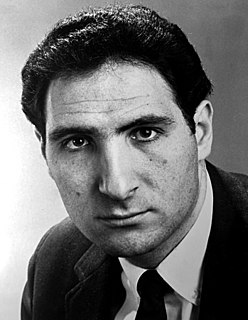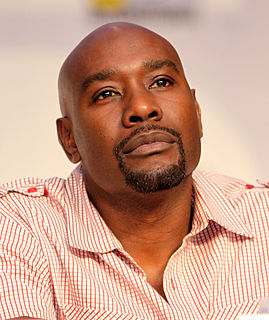A Quote by Paul Strand
Did I express my personality? I think that's quite unimportant because it's not people's selves but what they have to say about life that's important.
Related Quotes
I was not going to be an actor. I was an engineer in physics. That's what I did: I graduated with a physics degree, and I had become a little bit distressed that I'd have to work for somebody - anybody! And I thought, "I'm not going to make a mark on anything. If I can't express myself, then I don't know what the heck I'm going to do with this life." I think it was just one of those germs that said, "No, no, no, you've got to say things. You've got to tell people things. You've got to express your opinion in this life, because that's how you started."
It's tempting to think that decisions that are not life-and-death are therefore unimportant, and that the little compromises we make don't matter to our bottom line or our spiritual selves. How many of us are tempted, in business, to make a less-than-ethical decision? To appropriate someone else's idea or fudge some numbers? We have to remember that maintaining our ethical and spiritual selves is absolutely linked with achieving the degree of success we're working toward.
I used to think she was quite intelligent , in my stupidity. The reason I did was because she knew quite a lot about the theater and plays and literature and all that stuff. If somebody knows quite a lot about all those things, it takes you quite a while to find out whether they're really stupid or not.
[Being judge] is about being honest and giving everybody a fair shot and telling them what you think. Sometimes it's good and sometimes it isn't. It's more important to be honest than say things to make people feel better. I don't think you have to be rude, but I think you have to be honest. But I think it's really important to be specific: Here's what you did that was great and why. And here's what you did that wasn't great and why.
Until your personality has exhausted its obsession with running the show, your soul isn’t given the space to express itself. Your personality can be threatened by your soul, because your personality has controlled your life for a long time and doesn’t want to give up control. Your personality is like a wild horse that tries to throw off the rider trying to tame it. The rider is your soul.
But I think writing should be a bit of a struggle. We're not writing things that are going to change the world in big ways. We're writing things that might make people think about people a little bit, but we're not that important. I think a lot of writers think we are incredibly important. I don't feel like that about my fiction. I feel like it's quite a selfish thing at heart. I want to tell a story. I want someone to listen to me. And I love that, but I don't think I deserve the moon on a stick because I do that.



































